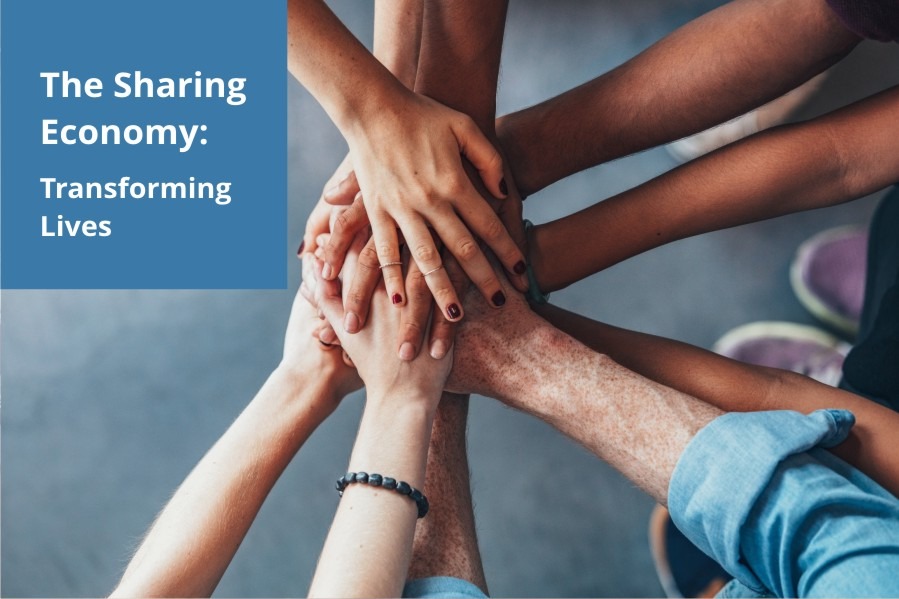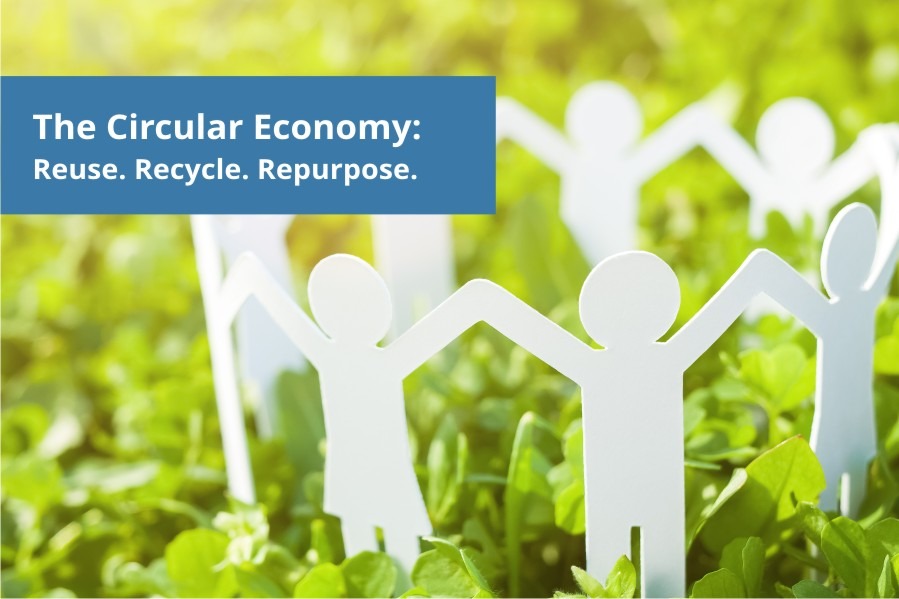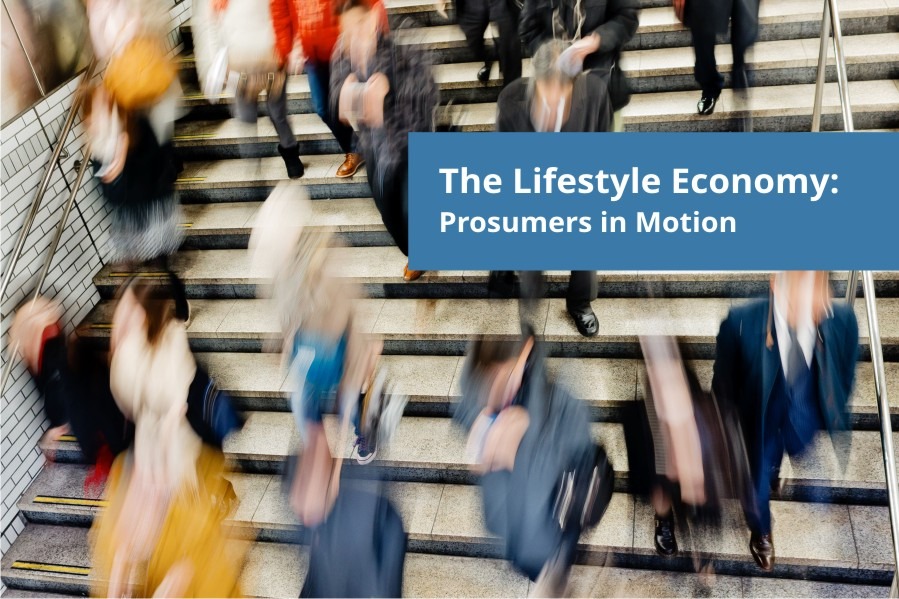The Sharing Economy: Transforming Lives
A True Social Innovation
For thousands of years, people have shared goods and exchanged services. It is the bond that holds societies together. Not only is it economical, but it also has the benefit of creating trust between community members. As the bonds of trust grow — so does compassion, knowledge, generosity and a common purpose.
The concept of sharing has accelerated and evolved dramatically in recent years. The ability for individuals to communicate instantly and globally via technology has made it easier and more reliable to connect for those wanting to collaborate in search of favorable shared opportunities.
This enhanced social commerce has generated nothing short of an economic revolution. The change in perspective began in 1995, when eBay was just a start-up. eBay demonstrated the efficiency of the technology-enabled sharing process and highlighted the significance of the social nature between buyers and sellers. As parties were able to connect and gain direct access to the distribution goods and services throughout various marketplaces, both individuals and business quickly realize the implications. Many were quick to adopt policies that encouraged openness and transparency and adapt to the new potential on the horizon.
A New Way of Thinking
The Sharing Economy is different than most economies as it is about access, not ownership. There are multiple motivations for participation. Some are altruistic; others have a clear profit motivation. This makes it difficult to get a handle on the true value of the sharing economy and what it means to society.
Adding to the confusion, the Sharing Economy seems to be accompanied by an endless word salad of terms that have an overlap of meaning and has mainstreamed a slew of new buzzwords. Crowdsourcing, crowdfunding, peer-to-peer, collaborative consumption, open source and “gigs” are just a few. Many of which have taken on new purpose and others are still yet to be fully-developed in terms of how they will be used to define this new economic phenomenon.
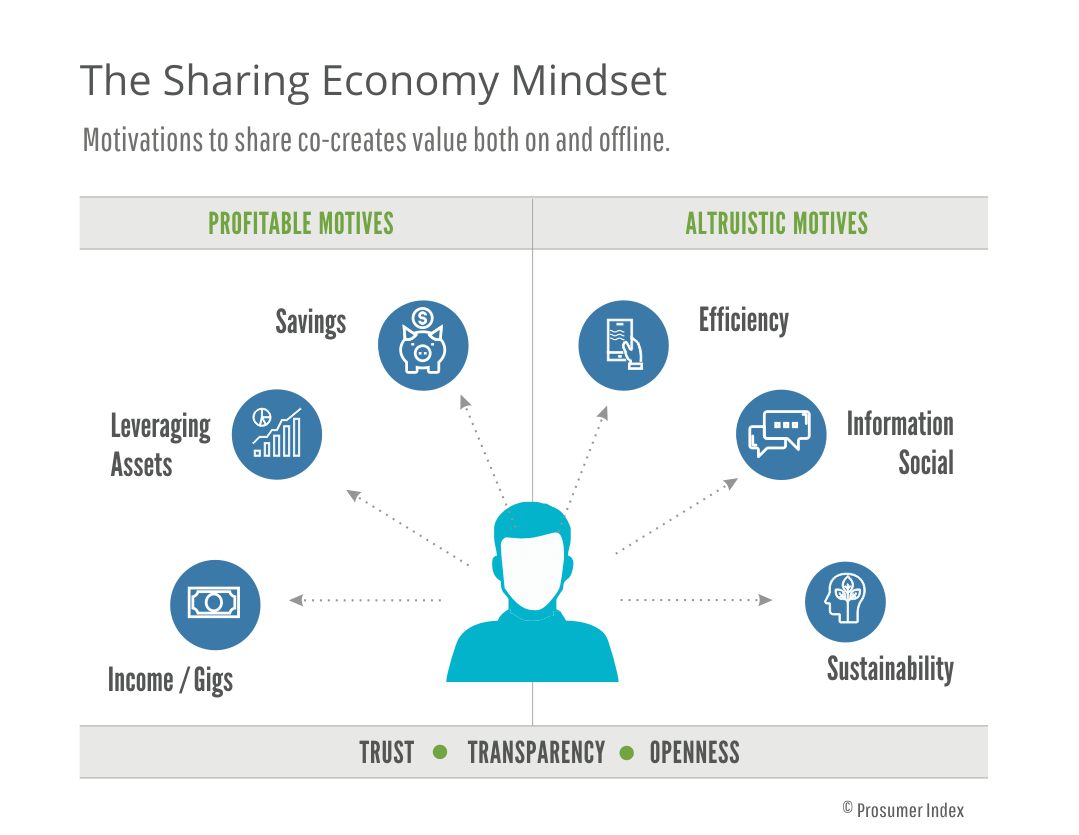
Trust, transparency and openness are the foundation of the sharing mindset. This foundation allows participants – no matter what their motivation – to build relationships and develop reputations that make the process achievable to create value for all parties involved.
Differing Business Models
The Sharing Economy is a disruption to traditional business models, but there is no one single operational model that it is built upon. This is precisely what makes this economy so remarkable. It allows for a great deal of flexibility so the preferred model — or even a new model — can be customized and enhanced by organizations and participants that support it. The sharing of resources can include multiple platforms, pricing methods and internal structures.
Our increase in population and constantly changing consumer needs are continually creating new supply and demand cycles. Sharing has the ability to play a significant role in balancing out the equilibrium for the best use of resources at an optimal price.
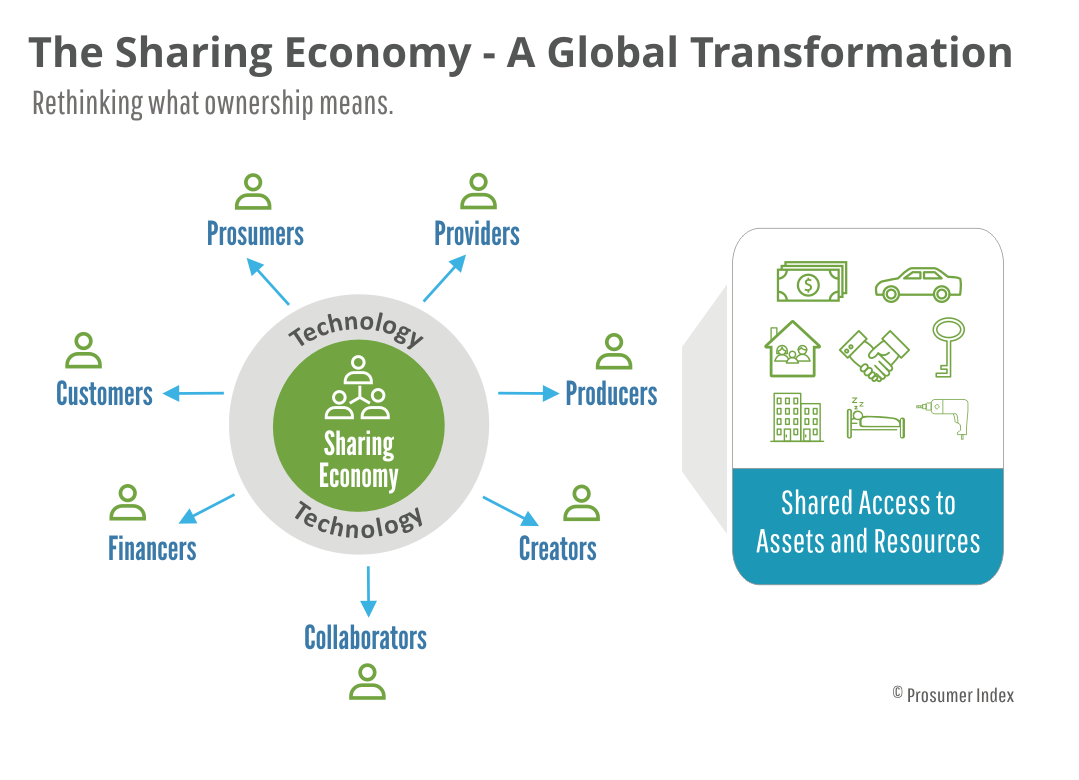
Almost every major sector now has companies operating in the sharing economy that have emerged and are rapidly challenging established major players in industries like: transportation, lodging, commerce, finance, agriculture, employment and entertainment.
Rethinking Ownership
In an access-based system versus ownership-based system, the value that co-creation provides between consumers and suppliers can be leveraged for maximum use. Direct transactions empower people to more efficiently share their underutilized assets and skills with others.
This new way of looking at ownership is ideal from the prosumer perspective. Prosumers view the relationship between labor and consumption as one of co-creation. In elevating this socio-economic ecosystem, both prosumers and social media have fueled much of the growth by encouraging levels of accountability for safety, behavior and success.
Challenges and Opportunities
Regulation often trails behind innovation and disruptors. If new regulatory barriers are too stringent they have the potential to reduce opportunities for growth for participants, providers and platforms alike.
As the Sharing Economy increases, so do the challenges and risks associated with it. While issues of security, technology, responsibility and accountability are often raised by participants; issues of regulation, labor laws, insurance and taxation are often raised by organizations and governments.
The Sharing Economy has created a complex legal environment. City-by-city and country-by-country regulations are different for almost every major platform that benefits from the sharing of goods and services. Critics of the sharing economy frequently emphasize that the sharing economy business model often has unfair advantages over other businesses that are highly-regulated. The future presents an ongoing challenge for each realm to find the right balance between innovation and regulation.
Empowered to Innovate
There appears to be a potent truth to the saying that that “everything you need to know you learn in kindergarten”. From the time we are very young we experience the benefits of sharing, respecting the property of others and recognizing elements of fairness. It is the starting point for becoming a functional member of society.
The Sharing Economy has incorporated this elementary principle at it’s center as it grows in functionality and influence on society and the global economy. A considerable amount of investment capital has been invested, especially at the start-up level. As a young economy it holds many new sharing concepts and strategies in its wings.
By most estimates the Sharing Economy is about ten years old. That fact alone makes it hard to fathom that many of the household names associated with it today did not even exist a decade ago.
Learn About Other Prosumer Related Economies
PLATFORM ECONOMY | EXPERIENCE ECONOMY | LIFESTYLE ECONOMY | CIRCULAR ECONOMY
Share Prosumer Index
Impacting Innovation. ProsumerIndex.com is an independent research site focused on identifying and following innovative prosumer-driven thematic trends that are driving the new economies and impacting global markets. This article is for informational purposes only and to provide general knowledge about Prosumers, related brands and companies. We do not provide investment advice or product recommendations. The information on this site should not be used as a substitute for business, professional financial, legal, accounting or tax guidance.

